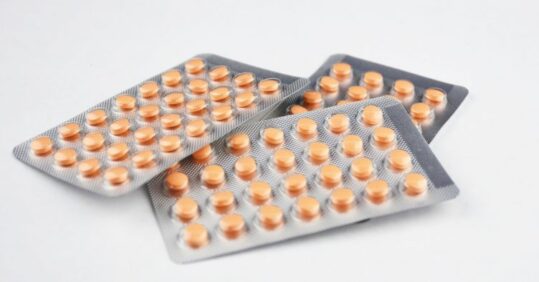Hormone Replacement Therapy (HRT) has long been a go-to treatment for managing symptoms of menopause and hormonal imbalances. But a growing number of people are now asking, “Can HRT cause depression?” While HRT offers many benefits, concerns around mood changes, including depression, are real and deserve a deeper dive. In this article, we explore the science, the symptoms, and what to expect from HRT—so you can make an informed decision about your mental health and hormonal care.
What Is Hormone Replacement Therapy?
Hormone Replacement Therapy is a medical treatment designed to balance hormone levels, particularly estrogen and progesterone, in individuals going through menopause, perimenopause, or other hormonal disorders. It can be administered through pills, patches, creams, or injections.
Common Reasons for HRT
- Menopause symptom relief (hot flashes, night sweats)
- Prevention of bone loss (osteoporosis)
- Vaginal dryness and discomfort
- Hormonal imbalance treatment
- Gender-affirming therapy for transgender individuals
Although HRT is effective in managing these issues, it’s also essential to understand the mental health implications of altering hormone levels.
Understanding the Link Between Hormones and Mood
Hormones play a powerful role in regulating neurotransmitters like serotonin and dopamine, which affect mood, energy, and emotional balance. When hormone levels change drastically—either due to natural causes like menopause or through therapy like HRT—it can trigger mood swings or even depressive symptoms.
So, can HRT cause depression? The answer isn’t straightforward. Let’s explore further.
Can HRT Cause Depression? Unpacking the Research
Conflicting Evidence in Studies
Some studies suggest that HRT may actually help reduce depressive symptoms, especially in perimenopausal women experiencing mood disorders due to hormone fluctuations. For example, estrogen therapy has been linked to improved mood and a reduction in anxiety symptoms.
However, other studies indicate the opposite. Certain types of HRT, particularly those involving synthetic progestins, have been associated with increased risk of depression and irritability, especially in sensitive individuals.
Key Findings:
- Estrogen alone may enhance mood and decrease depression in some women.
- Combined HRT (estrogen + progestin) may trigger mood changes, especially in younger women or those with a history of depression.
- The delivery method (oral, transdermal, injectable) also plays a role in mood-related side effects.
While there's no universal answer, the question “Can HRT cause depression?” must be answered on a case-by-case basis, factoring in the type of therapy, dosage, and the individual's mental health history.
Symptoms to Watch for During HRT
If you're on HRT or considering it, here are common mood-related symptoms to monitor:
- Sudden mood swings
- Feelings of hopelessness or sadness
- Irritability or anger outbursts
- Loss of interest in activities
- Fatigue or sleep disturbances
- Increased anxiety
Noticing these symptoms doesn’t automatically mean HRT is the cause, but it's important to discuss them with your doctor to adjust treatment if needed.
Who Is Most at Risk?
Individuals More Likely to Experience Depression from HRT:
- Those with a history of clinical depression or anxiety
- Women in early menopause or perimenopause
- Patients on high doses or synthetic hormones
- People with underlying thyroid or adrenal conditions
If you fall into one of these groups and are wondering, "Can HRT cause depression in me?", it’s best to start with a low dose and monitor closely with your healthcare provider.
Managing Depression While on HRT
If you suspect your mood has changed since starting HRT, don’t panic. There are steps you can take:
1. Reevaluate Your Hormone Levels
Bloodwork can help determine whether your hormones are within optimal ranges or if adjustments are needed.
2. Adjust the Type or Dose of HRT
Switching from synthetic to bioidentical hormones or from oral to transdermal delivery can sometimes reduce side effects.
3. Integrate Mental Health Support
Talk therapy, cognitive behavioral therapy (CBT), and even short-term antidepressants may be recommended by your doctor.
4. Improve Lifestyle Factors
Regular exercise, a balanced diet, and quality sleep can dramatically improve mood and lessen the risk of depression—even while on HRT.
Post-Treatment Care and Monitoring
After starting HRT, regular follow-ups are crucial. Your healthcare provider will monitor not only physical symptoms like hot flashes and bone density, but also mental well-being. Keeping a mood journal or using mental health tracking apps can help identify patterns and prompt early intervention if depressive symptoms arise.
Natural Alternatives to HRT
If you're worried about whether HRT can cause depression, and you’re not ready to commit, here are a few natural alternatives that may help manage hormone-related symptoms:
- Phytoestrogens from soy and flaxseed
- Black cohosh and evening primrose oil
- Acupuncture and herbal medicine
- Mindfulness and yoga
However, always consult a healthcare provider before replacing or discontinuing HRT.
Final Thoughts: Should You Be Worried?
So, can HRT cause depression? The answer depends on various factors including your personal mental health history, the type of hormones used, and how your body reacts. For many people, HRT improves quality of life without mental health side effects. For others, it may trigger or worsen depressive symptoms.
That’s why it's crucial to take a personalized, medically supervised approach to hormone therapy. Always keep open communication with your doctor and don’t ignore mood changes—they're just as important as physical symptoms.





Comments